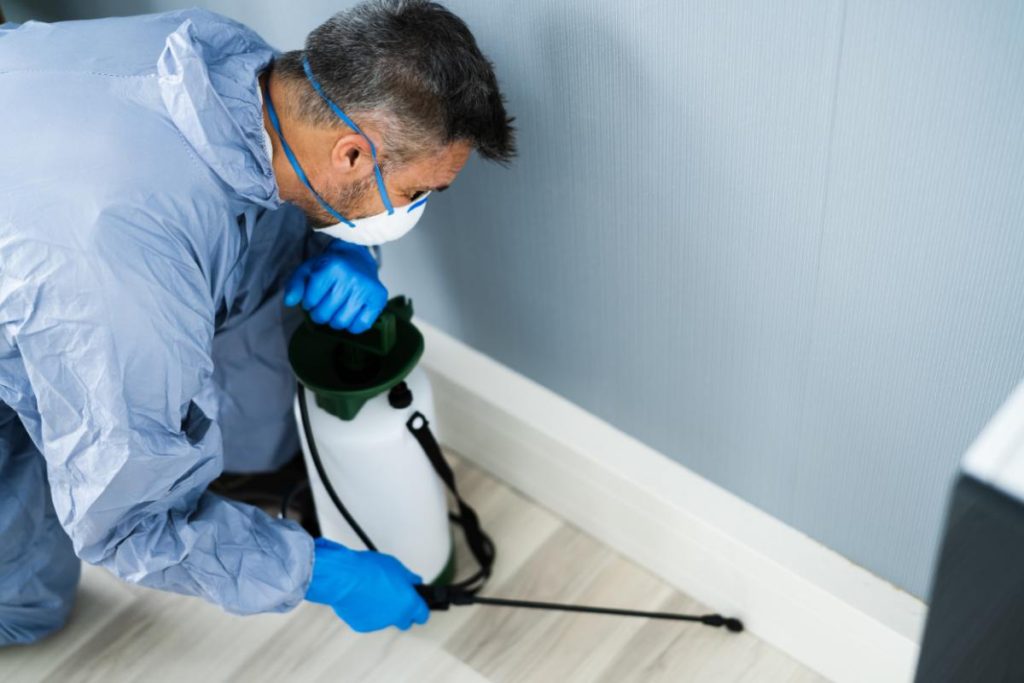Pest control is a paramount aspect of managing and stemming the infestation of pests in residential, commercial, and agricultural settings. It implicates using various techniques and strategies to control and eliminate pests that can cause harm to human health, damage property, and impact the environment negatively. Pest control services aim to strike a balance between effectively managing pests and minimizing the use of harmful chemicals to maintain a safe and healthy living environment. We will delve into the significance of pest control, its purpose, the scope of pest management services, and the importance of adopting sustainable pest control practices.
Definition of Pest Control
Pest control guides the systematic management and regulation of pests that may threaten human health, property, agriculture, and the environment. Pests are organisms that adversely affect human activities, including insects, rodents, birds, weeds, and microorganisms. Pest control implicates using preventive measures, physical barriers, chemical treatments, biological rules, and cultural practices to manage pest populations and reduce their impact on human well-being and the ecosystem.
Purpose of Pest Control
The primary purpose of pest control is to protect public health, safeguard property, and maintain ecological balance. Pests can transmit diseases, contaminate food, and damage structures, and crops, ushering in economic losses and potential harm to human health. Effective pest control helps to mitigate these risks and ensures a safe and healthy living environment for communities.
Health Protection
Some pests, such as mosquitoes, flies, and rodents, are deliverers of diverse diseases and can transmit pathogens to humans. Pest control measures help stem disease transmission, lessening the hazard of outbreaks and guarding public health.
Property Preservation
Pests like termites, carpenter ants, and rodents can cause significant damage to buildings, furniture, and structures. Timely pest control interventions protect property and prevent costly repairs.
Agricultural Support
Pests can impair crops and lessen agricultural productivity. Effective pest management in agriculture ensures sustainable food production, supports rural economies, and helps secure food supplies.
Environmental Conservation
Certain pests like invasive species and aggressive plants can disrupt native ecosystems and threaten biodiversity. Responsible pest control measures strive to minimize adverse environmental impacts while managing pest populations.
Reducing Economic Losses
Pests can yield substantial economic losses to industries, businesses, and individuals. By mitigating pest damage, pest control services donate to economic stability and growth.
Scope of Pest Management Services
The scope of pest management services is vast and covers various sectors, including residential, commercial, industrial, and agricultural settings. Pest control professionals, typically comprehended as pest exterminators or pest technicians, are trained to identify, monitor, and implement appropriate pest control strategies for different situations. The scope of pest management services includes the following areas:
Residential Pest Control
In residential settings, pest management services target common household pests such as ants, cockroaches, bedbugs, spiders, termites, and rodents. Pest control professionals utilize various methods to control pests, including baiting, trapping, chemical treatments, and sealing entry points.
Commercial Pest Control
Commercial establishments, including restaurants, hotels, offices, and retail spaces, are vulnerable to pest infestations. Commercial pest control services focus on stemming and managing pests that can impair property, contaminate food, and negatively impact businesses.
Industrial Pest Control
Industries such as manufacturing, warehousing, and food processing face unique challenges regarding pest control. Pest management services in industrial settings often involve specialized techniques and rigorous monitoring to comply with industry regulations and standards
Agricultural Pest Control
Pest management is paramount for optimizing crop yields and protecting crops from pests that can cause substantial losses. Integrated Pest Management (IPM) is commonly used in agriculture, accentuating multiple control methods and environmentally friendly practices.
Urban Pest Control
Urban pest control deals with pests commonly affecting city dwellers, such as mosquitoes, flies, and pigeons. Managing urban pests requires a balanced approach to avoid harming beneficial insects and wildlife.
Green Pest Control
An emerging trend in the pest control industry is adopting eco-friendly or green pest control practices. Green pest control prioritizes using non-toxic and low-impact solutions to manage pests effectively while minimizing environmental harm and non-target organisms.
Pest Control Methods and Techniques
Pest control services operate a spectrum of methods and techniques to supervise pest populations effectively. The selection of methods relies on the sort of pest, the infestation’s stringency, and the pest problem’s location. Some common pest control methods include:
Chemical Control
Using pesticides, insecticides, and rodenticides is a typical strategy for controlling pests. Chemical control effectively annihilates pests but should be used cautiously to stem adverse effects on non-target organisms and the environment.
Biological Control
Biological control involves using natural predators, parasites, and pathogens to control pest populations. This method is usually more environmentally friendly and sustainable, corresponding to chemical control.
Physical Control
Physical control methods include trapping, baiting, and exclusion strategies to stem pests from accessing individual spots. Physical barriers like screens and nets can protect pests from buildings and crops.
Cultural Control
Cultural control practices implicate modifying human practices and habitat conditions to deter pests. For example, rotating crops, maintaining proper sanitation, and reducing standing water can help prevent pest infestations.

Pest control is paramount to maintaining public health, protecting property, and maintaining the environment. It implicates diverse methods and techniques to supervise pest populations effectively and safely. Pest management services encompass multiple settings, including residential, commercial, industrial, and agricultural applications. The objective of pest control is to lessen the influence of pests on human health, property, and the environment. By managing pest infestations and implementing preventive measures, pest control services contribute to a safer, healthier, and more sustainable living environment for communities worldwide.
The scope of pest management services is broad, covering various pest-related issues across different industries and settings. From residential pest control targeting common household pests to agricultural pest management ensuring sustainable food production, NYC exterminators play a crucial role in safeguarding public health and economic well-being.
Integrated Pest Management (IPM) is a holistic approach increasingly embraced within pest control. IPM emphasizes using multiple strategies to manage pests effectively, combining preventive measures, biological controls, and reasonable chemical treatments. IPM strives to balance pest control and environmental preservation by promoting the least harmful methods and minimizing reliance on chemical pesticides.











